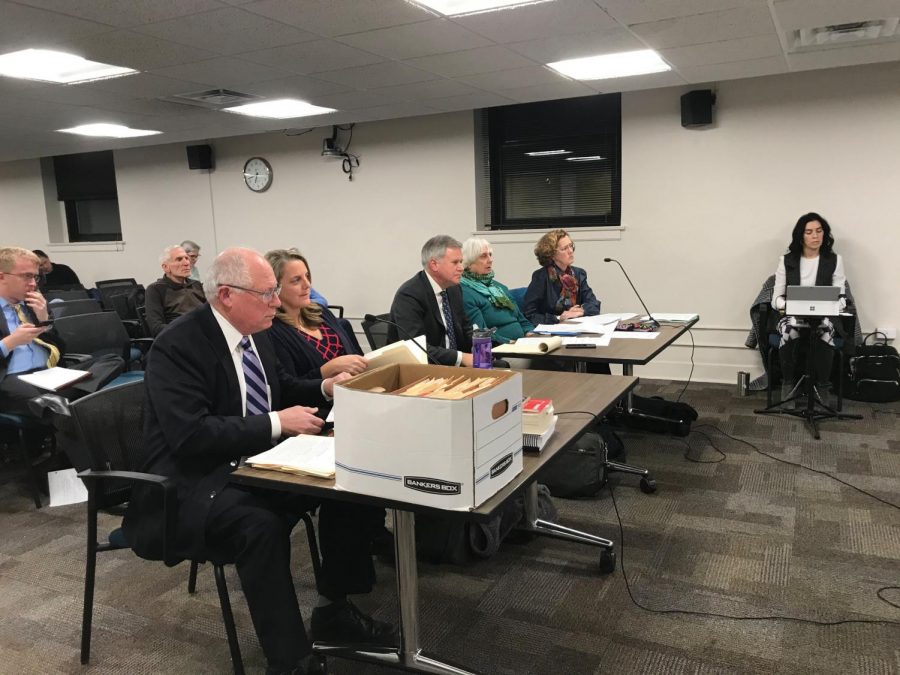Electoral Board sustains objection to Evanston Voter Initiative
January 16, 2020
The Municipal Officers Electoral Board sustained the objection to the Evanston Voter Initiative in a 2-1 vote during their hearing Wednesday, but the petitioners and supporters of the initiative claimed the proceedings were biased.
The Evanston Voter Initiative is a petition that aims to create a pathway for Evanston residents to create and pass ordinances. The hearing decided that the referendum question concerning the initiative will not be on the March 17 ballot. The petitioners, resident Allie Harned and former Illinois Gov. Pat Quinn, Evanston Voter Initiative’s legal counsel, said they will appeal this decision in a higher court.
During the hearing, Mayor Steve Hagerty and Ald. Ann Rainey (8th) voted for both parts of the objection while City Clerk Devon Reid — the third member of the board — voted against. After the objection was sustained, the board unanimously voted to adopt a written decision.
The first section of the objection argued the Illinois constitution does not allow binding referenda on a local question of public policy.
“There are going to be inherent ways conflict with the existing ways in which law is passed in Evanston,” former 7th Ward alderman Jane Grover said.
The petitioners argued that binding referenda are legal because the power of the voters is equal to the power of the City Council, so each body has the right to submit referenda.
“Constitutional debates make it clear that voters have the identical power of a council to put a referendum on the ballot,” Quinn said.
The second paragraph said the Evanston Voter Initiative was “too confusing” for Evanston residents. This was refuted by the petitioners, who said all Evanston residents could understand it, and this was not a legal basis to deny their petition.
After the decision was confirmed, the city’s special counsel Daniel Bolin and Hagerty said the decisions were written before Wednesday’s hearing began.
Quinn argued Bolin was biased against the initiative because of the manner in which he wrote up the final decisions. Reid said he felt uncomfortable with the process, as more attention was paid to the written decision favoring the objection.
The objectors were given 10 minutes to state their case but did not use the full time allotted, after which Bolin posed questions to Quinn. Quinn said the questions favored the objectors even though Bolin is supposed to be a neutral party as the city’s special counsel.
“It’s almost as if we’ve hired an attorney for the objectors,” Reid said.
The petitioners then asked to see the files created by Bolin. Hagerty refused to share them, saying the board had client-attorney privilege. Quinn said because the board and their special counsel are public agents, they legally had to share the documents.
The board voted 2-1 against sharing the documents. Hagerty and Rainey voted to keep the documents private while Reid voted to release them to the public.
“The Freedom of Information Act, by the way, says public information belongs to the public,” Quinn said.
The residents in attendance expressed frustration with the proceedings during breaks and public comment. Carolyn Murray said she feels the board had clear ethical issues. Meg Welch said this decision is “disenfranchising” and was a “political decision.”
Rainey previously proposed a meeting between Quinn, Grover — main spokesperson for the objection — and Bolin, but it was unclear if this still will happen. The hearing was adjourned by the board after accusations were made by Quinn.
Email: [email protected]
Twitter: @emmayarger


